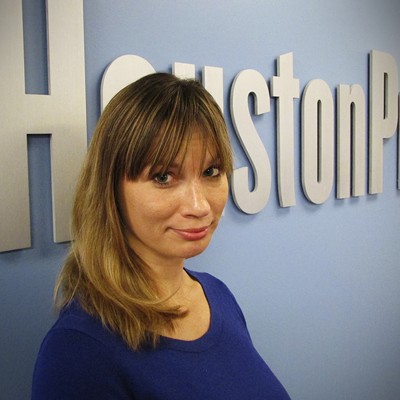Dow came to Texas during World War II, settling in Lake Jackson, the company town Dow created. The U.S. government sold Dow the land for its first toehold in the state at ten cents on the dollar. The plant was one of many factories that sprang up along the coast, fueled by government encouragement and the needs of the U.S. war machine.
Factories like Dow's were descendants of the Industrial Revolution, massive works of twisted metal that made the chemicals and materials that became the components of everything from paint to household cleaning supplies and just about any other product that had chemical ingredients. The rise of mass production required mass-produced chemicals for mass-produced products.
But the mass production that allowed things to be made both quickly and cheaply had another consequence. Machinery made it all possible, and there were no regulations in place to protect the people who worked with and around that machinery. There were always men and women looking for employment, but replacing machinery was more expensive. Without regulations and penalties to make injuries and deaths expensive, it was easier for companies to replace workers than to make workplaces safer.
Still, court battles throughout the 20th century slowly established workers' rights, and in 1970, President Richard Nixon signed into law the Occupational Safety and Health Act, which required employers to provide safe working environments for their employees. The act also established OSHA, which was responsible for ensuring that workers operated in safe and healthy environments, and gave the new agency the power to investigate and fine companies if they violated the rules and endangered their employees.
That was back when labor unions still had enough clout to help get legislation passed, but the unions, never as powerful in Texas as elsewhere, were losing what little power they had. Dow employees once went on strike in the early 1970s, but the company greatly diminished the power of the unions by not hiring union contractors, Stewart said. After that, if an employee took a stand on issues like safety or repairs, there was no one to back him up, Stewart said.
Dow Deer Park Communications Director Tracie Copeland said she'd never heard of the company eliminating the union presence in such a way.
"That's not consistent with the Dow culture at all," she said.
Frances Sowell knew the plants and refineries could be dangerous. Growing up in Galveston, she was in school the day of the famous 1947 Texas City explosion, when a shipload of ammonium nitrate ignited, killing close to 600 people in what is still the deadliest industrial accident in U.S. history. She heard the blast, and on the way home she peered out the window of the school bus and saw the truckloads of bodies being carted away. The explosion was the stuff of nightmares, but the plants and refineries were simply a part of life, a part of the Texas City landscape.
The Texas City explosion helped create the Blocker Burn Unit at UTMB in Galveston. Dr. Truman Blocker was a plastic surgeon at the hospital when the explosion occurred, but he'd worked with burn patients during his stint in the U.S. Army during World War II. He applied what he'd learned there to the more than 3,000 injured at Texas City. After that, he set up one of the best burn units in the country. Sowell worked with him there as a burn nurse, learning the ins and outs of caring for burn patients, never imagining that one of the children she went home to each night would one day be a patient in that ward.
Brian was a small baby, but he loomed at 6'9" by the time he got to La Marque High School, where his skill on the basketball court got some recruiters interested in him. He didn't have the grades to go with the skills that might have taken him to one of the major universities, but he received an athletic scholarship and studied criminal justice at Lamar University in Beaumont. He was going into law enforcement to become a cop — which fit with his love of superheroes — but had trouble keeping up his grades, and then his college girlfriend got pregnant, and it was time to come home.
After knocking around from job to job, he got certified as an operator. For a guy without a degree, a job at a place like Rohm and Haas was a good opportunity, with good pay, good benefits and some security as long as he didn't step out of line. Johns had worked at other plants in the area before landing at Rohm and Haas a few years before Dow bought it. By then, Dow was the second-largest chemical company in the world, with a much-touted and burnished safety record, according to OSHA.




